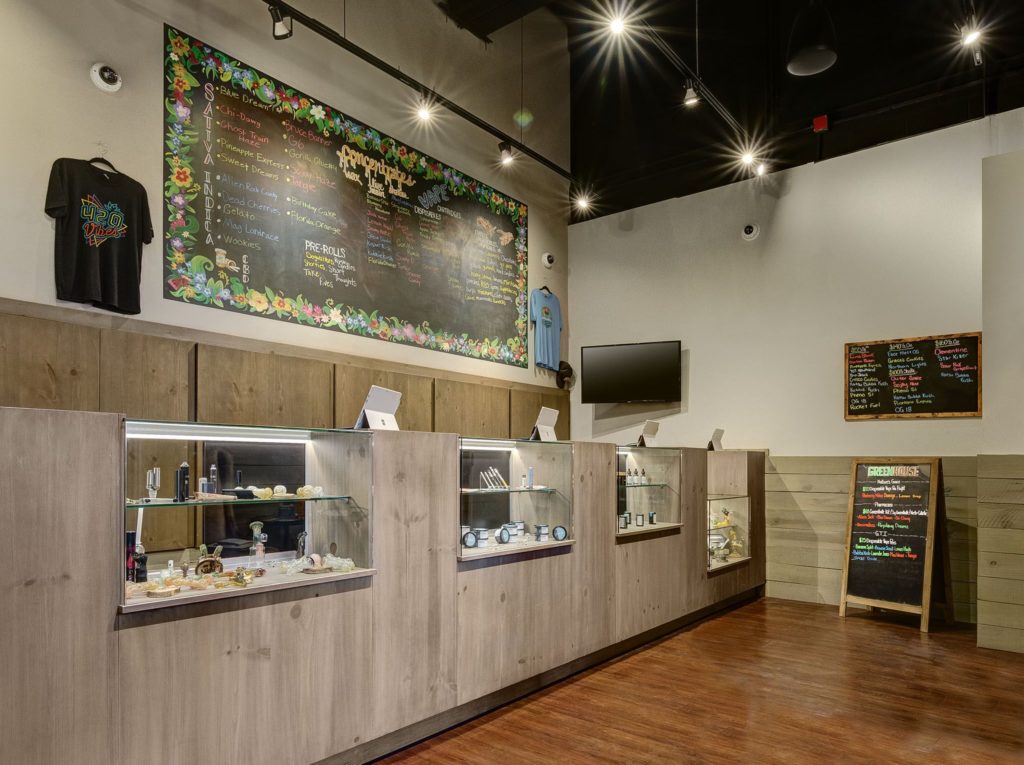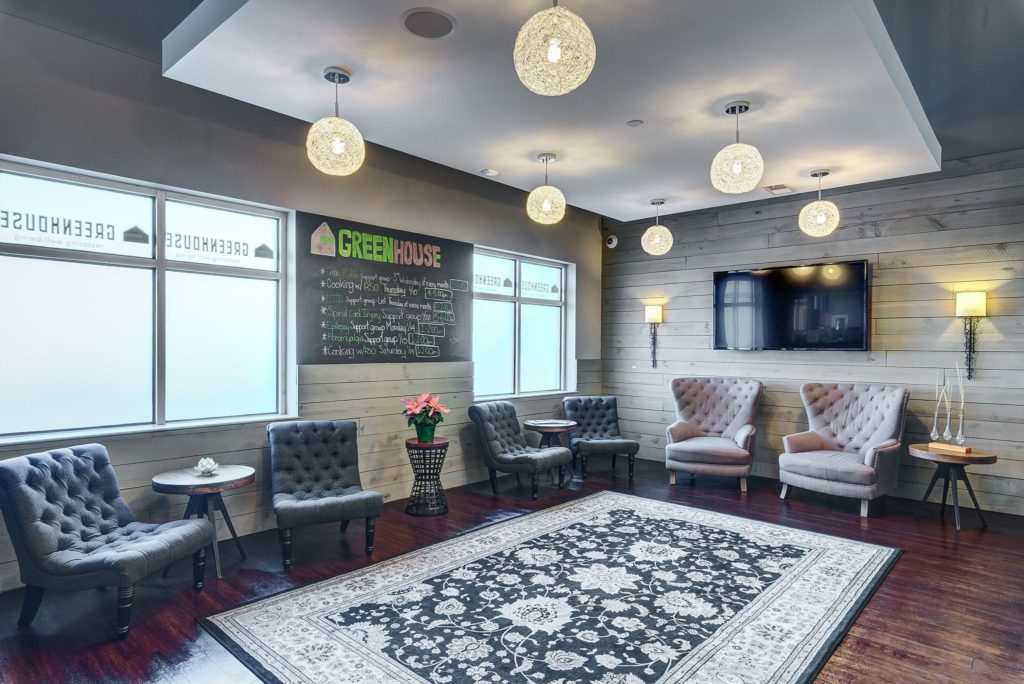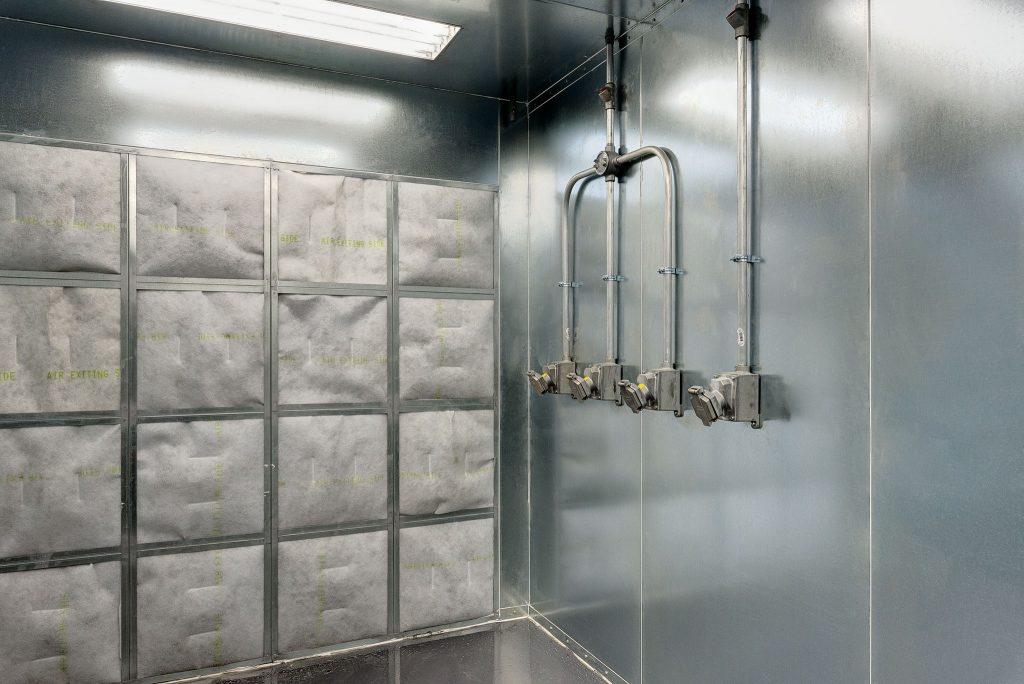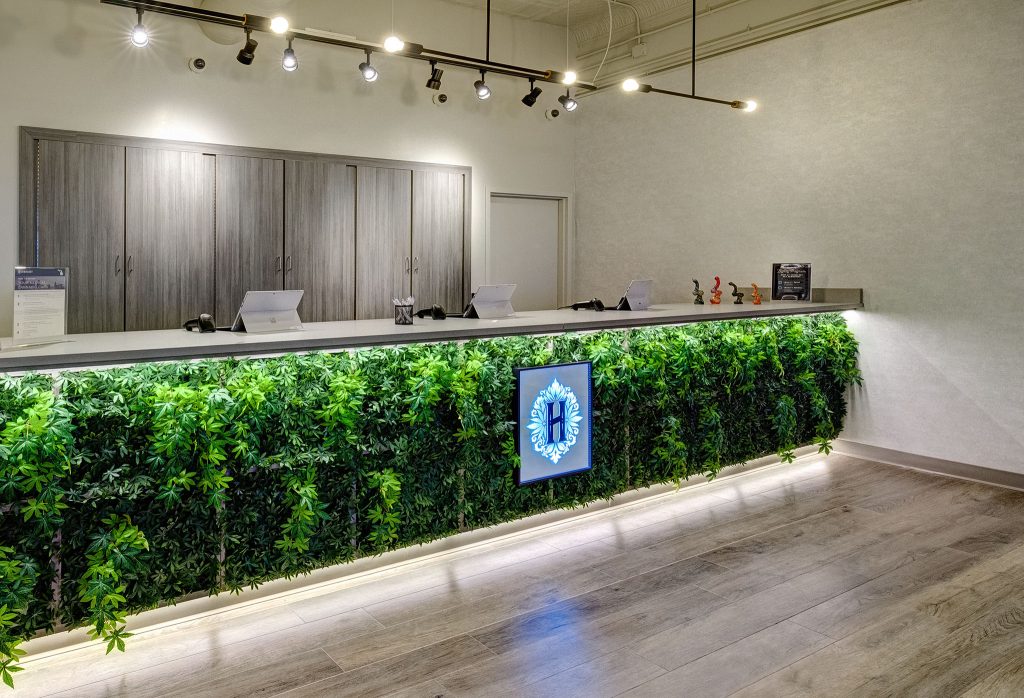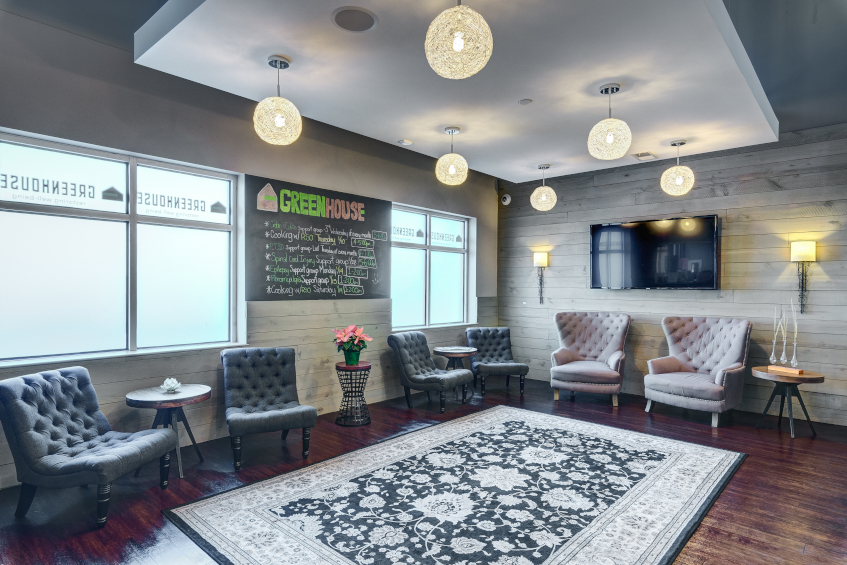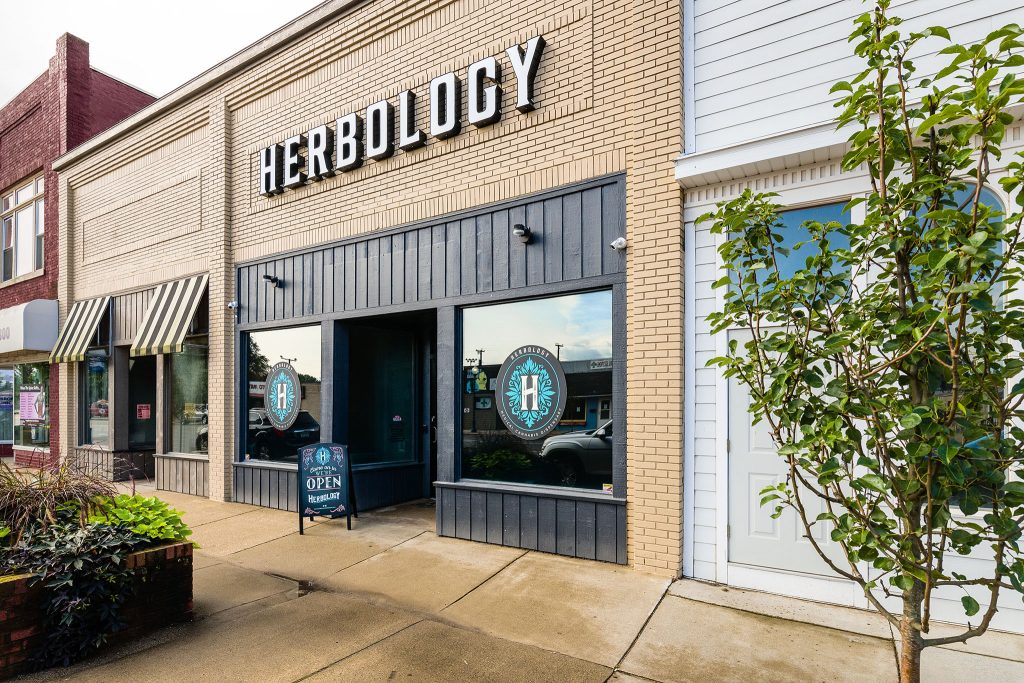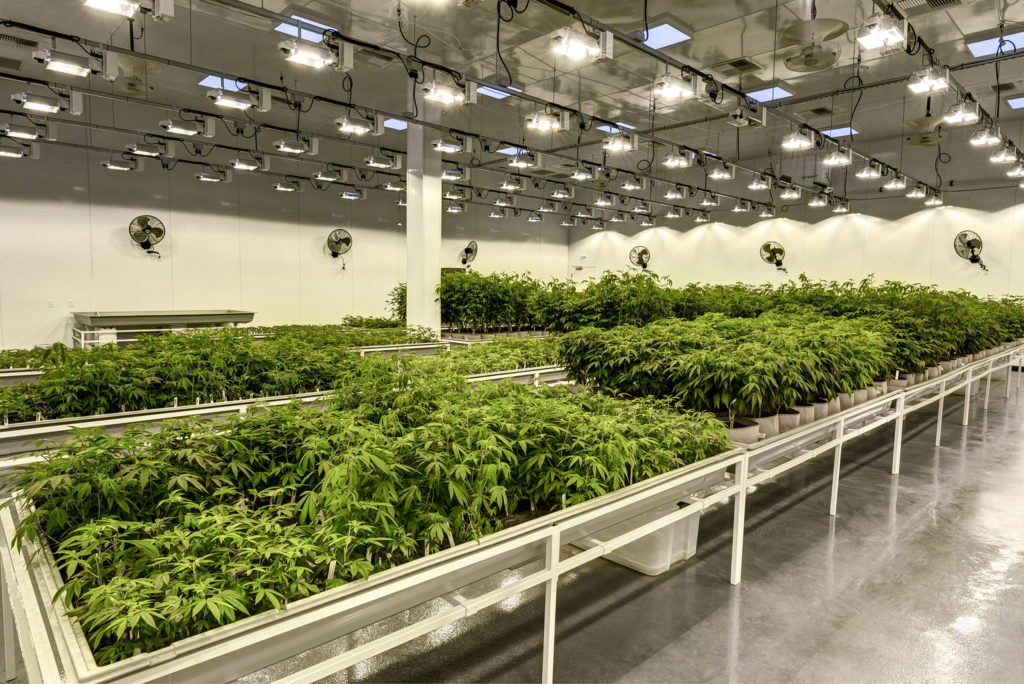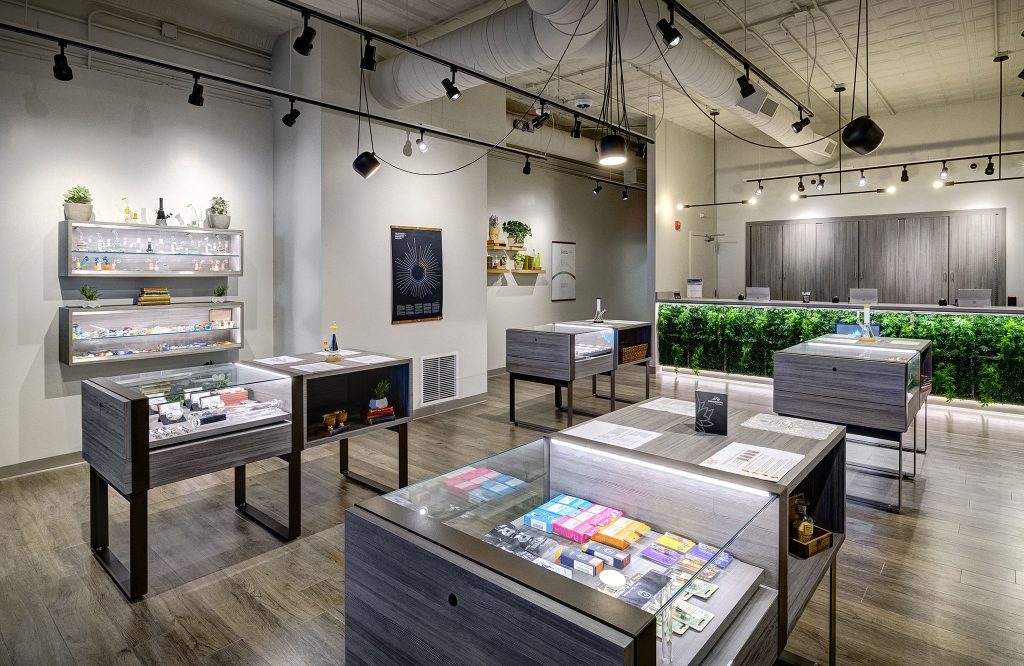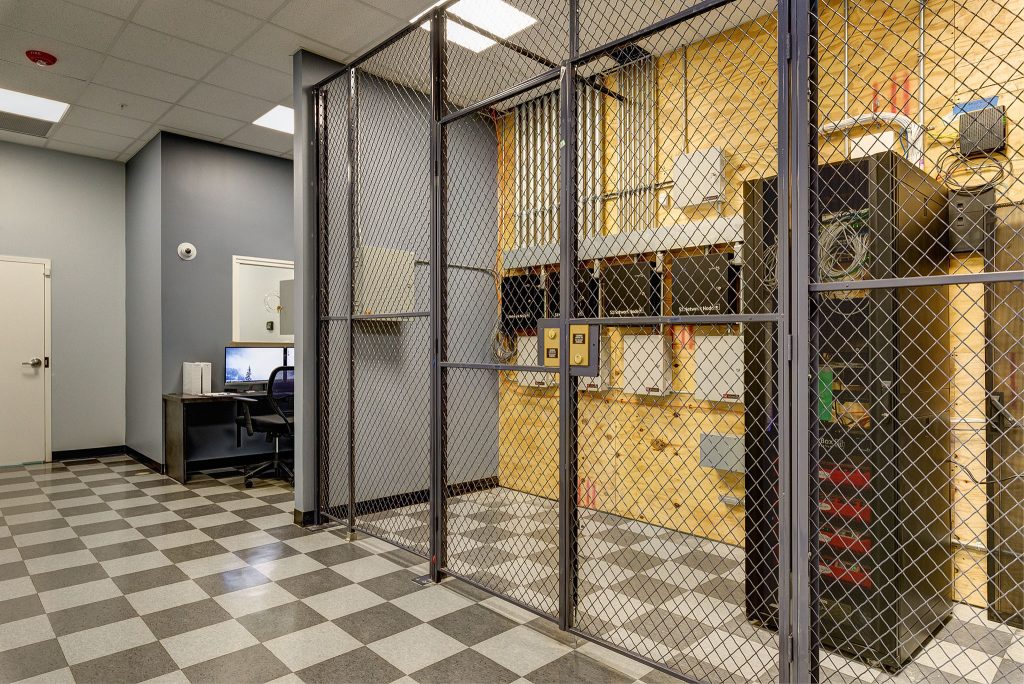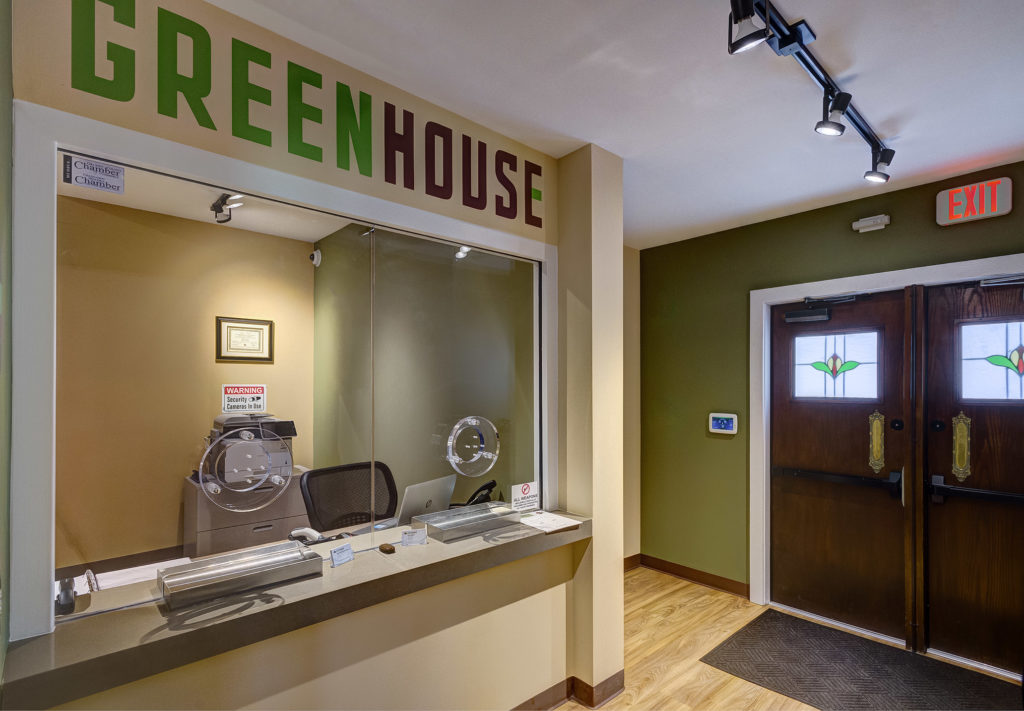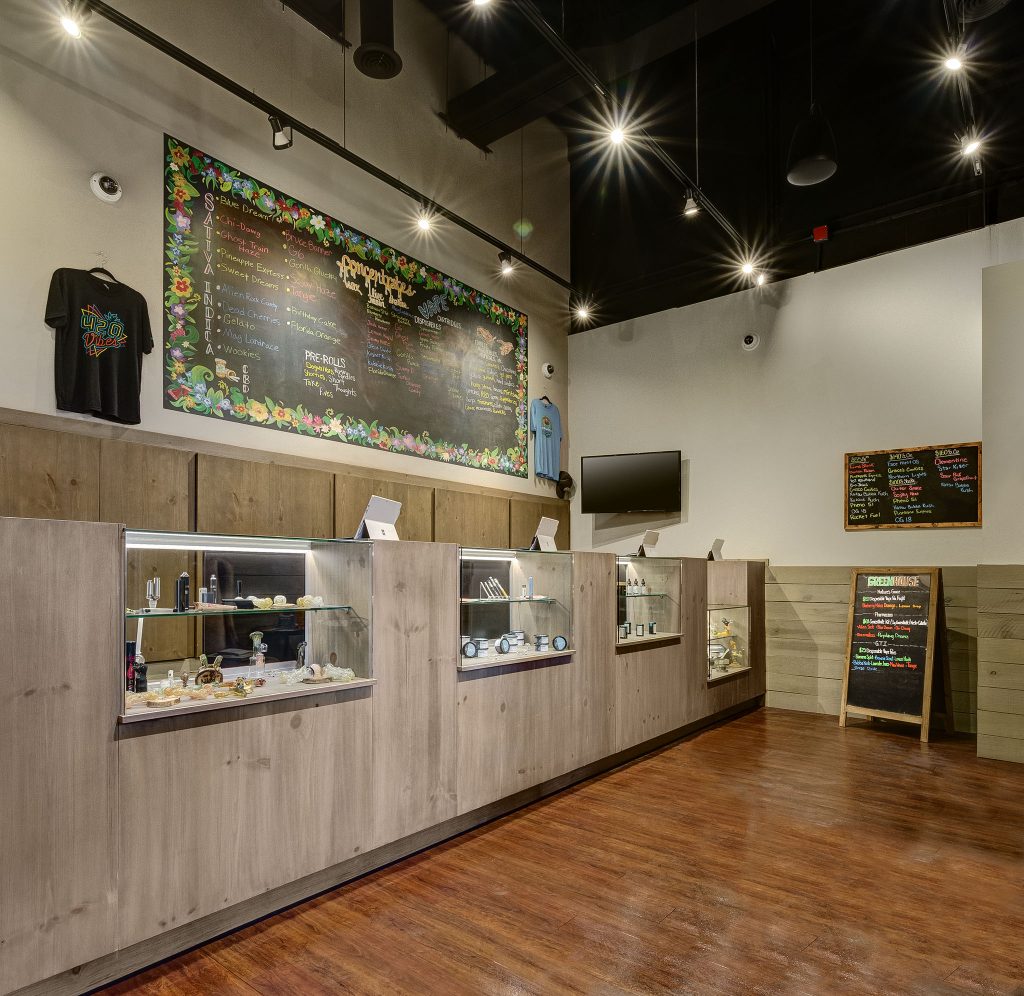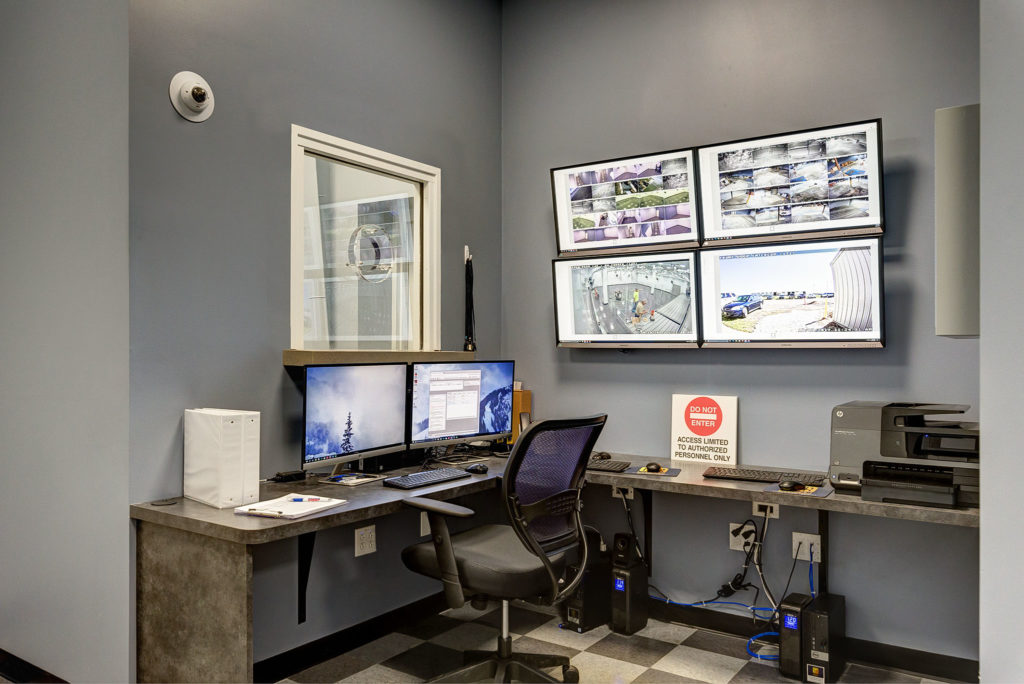Author: admin_mc
Aidan Baker Joins Mosaic Construction as Project Manager

Baker will also serve sister company Design Construction Concepts
CHICAGO, IL (March 2, 2020) – Mosaic Construction, LLC, a full-service design build firm specializing in multifamily residential and commercial renovation, remodeling, and building services, announced that Aidan Baker has joined the company’s rapidly-growing team as Project Manager. Baker brings more than 20 years of experience as a skilled contractor to Mosaic in both New Zealand and the United States. He offers a proven track record of working with highly discerning clients and turning their visions into reality.
In his new role at Mosaic Construction, and its affiliated Design Construction Concepts, Baker will be responsible for daily project excellence, schedule management, working with trade partners, and successful close out of custom residential and commercial projects.
“Aidan brings top-quality service and craftsmanship to our team – qualities we value and know will make a great impact on our business,” said Ira Singer, principal of Mosaic Construction, LLC. “We’re looking forward to having Aidan on our team.”
Mosaic Construction and Design Construction Concepts have earned a stellar reputation for providing superior customer service in executing all elements of the design build process for more than 30 years. Principals include Ira Singer, Andy Poticha and Mike Frazin. The companies’ expertise includes design build renovation, remodeling and construction services for residential and commercial property owners who expect an elevated level of care, and where customer relationships are a number one priority. For more information, call 847-504-0177, visit www.mosaicconstruction.net or visit www.dcc-inc.net.
In 2020, Cannabis Construction Must Offer Security of a Bank, Compliance of a Pharmaceutical Company, Aesthetic of a High-end Retailer
Legal recreational cannabis is a new industry in Illinois—and it’s in dire need of customized facilities. The first month of recreational cannabis sales in Illinois amounted to nearly $40 million. Sales figures spell opportunity both for cannabis companies and for experts in building special-purpose facilities for the industry’s stringent regulations and experience-driven customers.
Andy Poticha, Principal at Cannabis Facility Construction (CFC) has been involved in more than 30 cultivation, processing center and dispensary projects in eight states since 2015. He’s leading renovation projects that offer Illinois more than 35,000 new square feet of cannabis cultivation areas and dispensaries customized for the needs of recreational cannabis customers.
“To become recreational cannabis users’ preferred dispensary, new cannabis license holders must prioritize both compliance and customers in their facility design,” Poticha observes. The design/build process must support two core objectives:
- Prioritize compliance or suffer the consequences. To maintain product supply and operational retail sales, stick to strict protocols and carefully follow building codes related to the handling, storage and distribution of cannabis throughout the supply chain.
- Offer a differentiated customer experience. Product commoditization and restricted in-state cannabis sourcing leads to stiff competition between dispensaries.
“Cannabis companies need to offer the security of a bank branch, the compliance of a pharmaceutical company, and the aesthetic of a high-end retailer,” said Poticha. “Designing for the customer experience, creating welcoming sales environments that are compliant with regulations, is where dispensaries can find true opportunity to differentiate themselves from the competition.”
For nearly five years, CFC has worked with numerous cannabis companies, including Grassroots Cannabis, a vertically integrated multi-state cannabis company. For co-founder Mitch Kahn, CFC has helped Grassroots embrace these seemingly competing objectives into a cohesive customer experience.
“Partnering with CFC, we have been thoughtful about connecting the design/build process with our customer experience and compliance objectives,” said Kahn. “Together, we identified and solved potential issues early in the design/build process, so that the build-out is supportive of sales, security, and being good neighbors in our communities.”
Know before you grow: Secrets of successful cannabis facilities
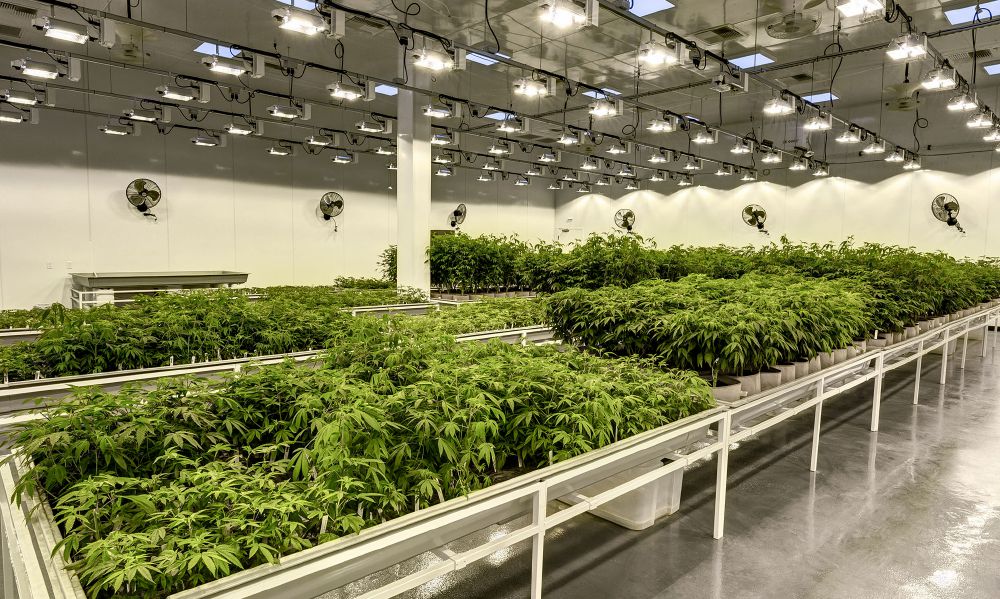
This article was original posted on the REJournals blog here.
As cannabis legalization sweeps the Midwest, demand for facilities to grow, process and sell cannabis products is skyrocketing. A shared concern in every state is product shortages; will there be enough cultivation facilities to provide product to the market? Therein lies the makings of a rush to market—and a building boom.
The business opportunity is evident. What many don’t recognize is the high risk of construction delays due to the complex requirements for cannabis facilities. While every location is regulated differently at the local and state levels, we’ve identified a set of success factors for cannabis facility site selection and construction across the eight states where we’ve led renovations.
Don’t rush pre-construction planning
In a new industry, speed-to-market is critical—but it’s a marathon, not a sprint. Carefully choosing the right site for operational success and ensuring that the drawings are compliant will be time well spent. Confirm that regulations are addressed, from cannabis-specific rules to unique building codes and even future investment structure parameters. Investing up front will reduce delays and costs later in the process.
Security comes first—no exceptions
Security is the first concern in any zoning approval meeting, regulatory inspection or other critical path approval milestone. Understanding local community and police expectations for a secure facility, beyond what is required by law, is critical to ensuring the facility design and construction will be approved for operational use. Security in the cannabis industry is more than cameras and technology installation; the building you choose must offer secure and compliant entry areas for employees and (for retail) customers, and the renovation must foresee and address any potential security risks of the facility itself.
Entry and egress are critical
For both dispensaries and cultivation facilities, the process of bringing cannabis products in and out of the building is both operationally critical and externally controversial. If you don’t have the right loading area design, you may have to make costly changes later in the process—or even abandon an otherwise strategic site, because the site simply can’t alleviate community concerns about safety or traffic.
Technology installation is part of your schedule, whether you plan for it or not
Many cultivation facilities are largely located in existing buildings that began their life as a warehouse or factory. However, the shell is just the beginning. Beyond ensuring the construction is code compliant and aligns with the operational program, the construction timeline needs to account for the installation of multiple complex interlocking technology systems required to grow high-quality, legal cannabis. Major systems include advanced HVAC systems that regulate and measure air purity, sophisticated lighting systems, cannabis processing equipment that requires custom environments, industrial-scale kitchen areas and advanced racking, water supply and automation systems.
Don’t underestimate the HVAC, lighting and other technical requirements for cultivation facilities
More similar to pharmaceutical manufacturing operations than a family farm, cannabis cultivation requires highly specialized facility features. The products that will be grown in the facility will undergo rigorous testing and compliance monitoring, requiring sophisticated lighting, air purification and water management systems. Working with a knowledgeable team who can ask the right questions based on operational experience is critical to ensuring an environment conducive to growing high-quality cannabis.
Build in flexibility for rapidly evolving needs and regulations—especially the transition from medical to recreational sales
Today’s regulations are tomorrow’s memories. In a rapidly evolving industry, your facility needs to be compliant today, and give you flexibility to adjust as regulations change. The most significant change may come when your state evolves from medicinal cannabis legalization to recreational use. Typically, when a facility has been designed according to medical regulations, it will need significant renovation to be compliant for adult use cannabis growth, processing or sales. By making future-forward decisions during the design-build and site selection processes, you’ll ensure your facility is ready for that transition, saving time and money down the road.
Environmental impact can bring construction to a halt if you’re not careful
Even well into the construction or renovation process, your facility’s impact on the natural environment is an important aspect of the project. Mistakes can potentially give ammunition to anti-cannabis foes or bring expensive and unexpected issues to address. To avoid costly environment-related delays, it is beneficial to establish relationships with local authorities early on in the development process. Be proactive and address any concerns in advance: i.e. plan to improve water and air quality; reduce energy use; manage waste discharge; protect nearby wetlands, rivers, fisheries and forests and have a plan in place in case you discover ancient human artifacts (classified as “cultural resources”).
There’s an upswell of interest from real estate companies to expand services into the cannabis sector, and rightly so, given the rising demand for cannabis retail, cultivation and processing facilities. The successful projects will be the ones that plan for the complexity of this highly regulated industry.
About the author
Andy Poticha is the principal of Northbrook, Illinois-based Cannabis Facility Construction and Mosaic Construction. He has led the renovation of more than 30 cultivation facilities, processing centers and dispensary projects totaling more than 307,800 square feet in eight states including Illinois.
The Rise of Hemp: The Federally Legal Industry is Booming
The hemp-derived CBD industry is expected to reach $16 billion nationwide by 2025. The ground-breaking Agriculture Improvement Act of 2018 or Farm Bill removed low-THC cannabis and its derivatives from the Controlled Substances Act, opening the door for FDA-regulated products like CBD pharmaceuticals, food items, additives, and dietary supplements. Already, major retailers like CVS and Kroger are selling CBD products. Granted CBD products, including CBD-infused water, CBD-infused cosmetics and CBD-infused pet treats in the marketplace pre-dated the Farm Bill, those products can now be shipped across state lines and sold legally at the federal level. Here’s what you need to know about the rise of hemp in the U.S.
Hemp Vs. Marijuana
Hemp and marijuana look and smell nearly the same, but the similarities stop there. They derive from the same plant, cannabis sativa, but hemp contains less than .3% THC while marijuana has much higher levels. Hemp is now considered a federally legal agricultural product, and majijuana remains a DEA Schedule 1 drug, only legal in states with medical and adult use programs. In addition, hemp is regulated by the FDA and marijuana is not.
Hemp Facilities
Just like with marijuana, there are hemp cultivation facilities, processing centers, and retail businesses. The focus and capital investment has been on processing centers with businesses in Colorado City, Colorado and Janesville, Wisconsin leading the charge.
Colorado City has a population of under 3,000 but is home to Paragon Processing, the largest hemp-processing center in the United States. According to Westword, Paragon will produce a variety of hemp extractions through isolation and distillation techniques, projecting to produce one million pounds of hemp monthly. Industrial hemp production has the complete buy-in from Governor Jared Polis. “Governor Polis’s administration has pushed for looser regulations on hemp farmers and businesses in order for this state to maintain its top spot in the hemp industry,” adds Westword. “During a recent speech at a hemp and CBD industry conference, Polis said that hemp farming was part of his rural economic initiative, and that he’d like to raise Colorado’s current 62,000 acres allotted for hemp farming by 20 percent.”
Wisconsin’s young market already has as big player in Simply Solutions, a maker of natural personal care products, getting into the hemp game. Simply Solutions will be the area’s first-to- market commercial-sale processing facility with another distinction: a method that extracts almost 100% CBD oil content.
Per GazetteXtra, “Simply Solutions claims their extraction process is a cleaner and more efficient way to extract more CBD from hemp…Methods other producers use extract only 60% to 70% of the CBD, they said.That’s important, considering that some strains of hemp grown for CBD can net $2,500 to $75,000 an acre, according to New Frontier Data, a cannabis industry analyst.”
Sourcing hemp from reputable farmers is crucial for CBD purity, as many companies are extracting CBD from hemp plants not bred for CBD.
Licensing and Regulations
The Farm Bill gives states the authority to submit plans for licensure and regulations. According to the National Conference of State Legislatures, “A state plan must include certain requirements, such as keeping track of land, testing methods, and disposal of plants or products that exceed the allowed THC concentration…State policymakers have taken action to address various policy issues — the definition of hemp, licensure of growers, regulation and certification of seeds, state-wide commissions and legal protection of growers.”
Keeping Marijuana and Hemp Separated “Marijuana entrepreneurs who want to enter the federally legal CBD industry should consider starting a CBD business separate from the marijuana entity,” according to Marijuana Business Magazine. Though the Farm Bill has federally legalized the hemp industry, marijuana remains a Schedule 1 drug, and the main concern for businesses is extracting CBD that stays below .3% THC content. However, the same owner can have separate hemp and marijuana businesses.
The same article reported that Fairwinds, located in Washington state, faced a dilemma, desiring to enter the hemp space. The company’s products include tinctures, capsules, and topicals derived from a cannabis strain with CBD-dominant ratios, but with THC content above the limit. “The solution wasn’t simply removing THC from the products, because that would make them less effective. Rather, in anticipation of hemp legalization, Fairwinds CEO James Hull and his team spent more than a year finding new cannabinoids that could replace THC in formulations that would be federally legal while still an effective treatment.”
In the spirit and best practice of keeping the businesses separate, Hull ultimately created a new entity called Fairwinds CBD.
Less Oil Means More Plants
Another significant difference between hemp and marijuana is hemp’s lower oil content, which means that business owners must process more of the crop for an adequate CBD oil yield. Marijuana Business Magazine interviewed Craig Henderson, CEO of Extract Labs, a Boulder, Colorado-based extraction firm and CBD products manufacturer, who says hemp processing facilities will need larger extraction machines. “He [Henderson] estimated that a large marijuana company processes 100-300 pounds of cannabis per week, whereas large hemp companies process 2,000-10,000 pounds of the plant each week.”
In addition to larger equipment, business owners will need more employees and more space to handle the volume of product and extraction needs of hemp. “I think it’ll take people a couple months to figure out what they want to do and how they’re going to create businesses, and hopefully, maybe by June, we’ll see a huge spike in interest,” adds Henderson.
Proceed with Caution
The FDA remains the be all and end all governing body when it comes to regulating hemp. Hemp-derived CBD companies must be judicious about their product descriptions, especially information on potential health benefits. Moreover, the FDA has not given CBD as a food additive the designation of Generally Regarded as Safe.
Stipulated Sum Agreements Make Us the Right Builder for You
Our goal as a design-build firm is to create value for our clients through outstanding service-delivery and building trusted relationships. One of the many ways we achieve our goal is how we structure our contracts. Our clients want to know what they’re paying for, and we are able to clearly spell that out by providing stipulated sum agreements.
What is a Stipulated Sum?
Also referred to as a lump sum contract, a stipulated sum requires a builder to agree to provide specified services for a fixed price based on labor and material costs. The builder is responsible for executing the job properly and will provide its own means and methods to complete the project. Specifically, we use stipulated sum agreements with our multifamily and commercial projects, and they allow us to better define the scope and schedule of projects.
“We have always been client-centric, and what that means is that we want our clients to look at us as their design-build partners. The way we have been set up from inception has lent itself to that type of relationship.”
– Andy Poticha
Why We Use Stipulated Sums
Cannabis Facility Construction uses stipulated sums so that our clients know what they’re getting, and we know exactly what we need to deliver. Our contracts are predictable and easy to manage and benefit our clients in the following ways:
No Hidden Fees
One of Cannabis Facility Construction’s key differentiators is that we never stick our clients with hidden fees, compared to cost-plus-fixed-fee and other contracts. “We don’t charge, as most architects and most contractors do, a percentage of construction,” said Andy Poticha, Principal of Cannabis Facility Construction, on the Cannabis Legalization News podcast. “You have no incentive to finish a job on time and you have every incentive to make it cost more money. We said if we’re truly going to be partners with our clients, we need to have some skin in the game. We’re going to be offering them our process and our intellectual property, and we’re going to say that the project’s going to take this long, and our fee is going to be a stipulated sum based on how long that’s going to take.”
Predictability
Our clients value the predictability of stipulated sum agreements, especially since they reduce risk and give them more confidence. With an agreed upon sum in place, our clients are not liable for any cost overruns. “It doesn’t matter to us if the project is $6,000, $600,000, $60 Million, or $600 million,” added Poticha. “If it takes six months to do, our fees are going to be the same. Our clients understand that we have an incentive to finish it in the time that we’ve agreed to. But just as importantly, we have the incentive to make sure that our client is getting the most bang for their buck without us having the incentive of trying to sell them something more.”
Better Collaboration
We find that stipulated sum arrangements foster a greater degree of collaboration between Cannabis Facility Construction and our clients. We are able to execute tight project management and more efficient communication to ensure that both parties are adhering to the scope of work. “We are very different in our approach to how we look at our clients,” said Poticha. “We have always been client-centric, and what that means is that we want our clients to look at us as their design-build partners. The way we have been set up from inception has lent itself to that type of relationship.”
The design-build methodology supports our goal because it allows us to streamline the construction process, which ultimately benefits our clients and our management team. “We look at every project not as a one-time project, how much money can we make, finish it, and go on to the next project,” added Poticha. “We’re offering our client this partnership so that they can go on and do what they do best, while we do what we do best.”
What’s New for America’s Most Popular Cannabis States?
2019 has been the year of the cannabis plant in the United States. New states have joined the recreational cannabis club, young medical programs are exploding, mature ones are diversifying, and the Northeast is inching along. Here is the latest on the nation’s most popular cannabis states.
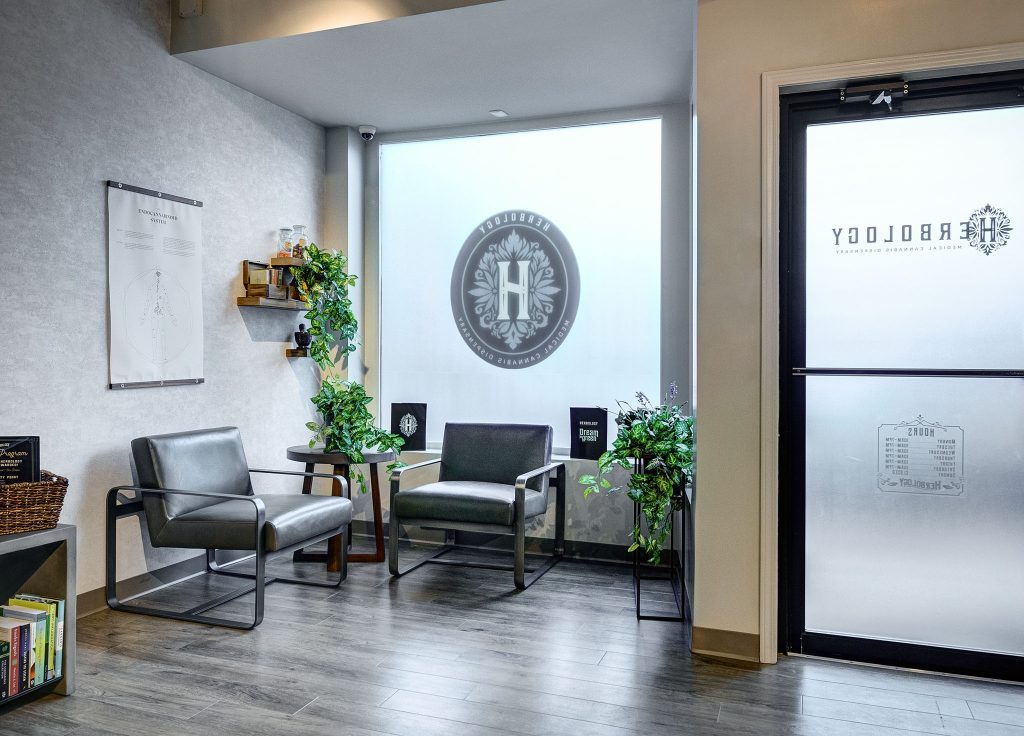
Colorado’s Cannabis Program Adds Versatility
Changes are coming to Colorado’s medical and recreational cannabis programs. House Bill 1230 will allow legal social consumption at businesses like dispensaries, restaurants, hotels, and music venues. Home-delivery of medical cannabis can begin in 2020, followed by recreational in 2021 thanks to the passage of House Bill 1234. In response to the state’s opioid epidemic, Governor Jared Polis signed the MMJ for Opioids Bill, which allows doctors to recommend medical cannabis as an alternative to opioid medications. The medical program also added autism to its list of qualifying conditions. Finally, House Bill 1090 opens Colorado’s cannabis industry to out-of-state investors and capital, including publicly held companies and large venture funds. Per Westword, “The bill would also permit investors to own smaller stakes (less than 10 percent) in a cannabis business.”
Illinois Hits a Snag
According to the Illinois Regulation and Tax Act, the state’s 55 existing medical dispensaries would have first dibs at applying for a recreational sales license at the same site, plus a second license for one at a different location. However, recently, The Illinois Department of Financial & Professional Regulation, the agency in charge of issuing those initial recreational-use licenses, announced a different interpretation: “…if a medical dispensary wishes to relocate for any reason — whether it’s for more space or if a home municipality bans recreational sales — it forfeits its right to also sell recreational marijuana,” per the Chicago Tribune.
This has created chaos for companies like Green Thumb Industries (GTI), which was awarded a retail license by the state in its Naperville location before the city council opted out of the program. “Naperville’s 6-3 vote on Tuesday, September 3 (2019) marks one of the first major roadblocks for Illinois’ marijuana industry as it prepares for recreational sales next year,” the Chicago Tribune added. “Whether GTI, or any other company, can open a store for recreational marijuana, could be reconsidered by the council after a potential non-binding voter referendum.”
Other municipalities in Chicagoland to ban recreational stores include Bolingbrook and Wheaton.
Oklahoma Medical Cannabis is Soaring
Previously, we wrote about the launch of Oklahoma’s medical program, and nothing is halting its trajectory toward a projected value of $250 million per year by 2025.
As of August, 2019, there are 162,273 registered medical cardholders, a number that’s been growing by up to 10,000 per month for the last year. To put those numbers in perspective, that’s 4 percent of the state’s total population.

There’s a pretty easy explanation for this success: patients don’t have to meet qualifying conditions, and instead only need a referral from a physician. There are also no caps on dispensary licenses, which is why the current number is over 1,700. Additionally, the barrier to entry is low. According to the Arkansas Times, “The license to grow on a commercial scale or open a dispensary in Oklahoma is a flat $2,500 and a fare thee well, open to any Oklahoma resident who hasn’t had a felony in the past five years. Their law allows cardholders to possess up to a half pound of marijuana, and grow up to six plants at a time. Their law also made possession of up to 1.5 ounces by non-cardholders a misdemeanor punishable by a maximum $400 fine.”
Additionally, High Times Magazine put Oklahoma’s cannabis culture on the map when it held its renown Cannabis Cups in Oklahoma City in August.
Massachusetts Social Equity
As more recreational cannabis businesses come online in Massachusetts, the push for social equity is taking center stage. Real Action for Cannabis Equity (RACE) started in Boston in September, 2019 to address the dearth of minority-owned operators. Per Marijuana Business Daily, “Organizers say they’re frustrated that all but two of Massachusetts’ 184 marijuana business licenses were issued to white operators…black entrepreneurs in Massachusetts who say people of color are being shut out of the lucrative marijuana industry are joining forces to close the gap.”
New York Decriminalizes Cannabis
Though New York state failed to pass recreational cannabis during the 2019 legislative session, a last-minute compromise was reached on decriminalization. According to The New York Times,”Under the new law, possessing between one and two ounces of marijuana will no longer be considered a Class B misdemeanor. It will now be a violation, with fines up to $200. Those found with less than an ounce of marijuana will now face a $50 fine, compared with $150 previously.” In addition approximately 160,000 people will have cannabis convictions expunged from their records.
New Jersey Still has a Chance to Pass Recreational Cannabis
The Garden State saga to legalize recreational cannabis is back on. The state Legislature came up short on votes to pass a new law earlier in 2019, but the law-making body isn’t giving up, envisioning two scenarios:
- Holding another vote for the bill during the lame duck session at the end of 2019 or the first half of 2020
- Putting it on the ballot for the November, 2020 election
Governor Phil Murphy has voiced his preference of passing recreational cannabis through the Legislature versus relying on the ballot box. According to NJ.com, “Such a move would allow leaders to more easily mold and regulate the new marijuana industry. And waiting until next year’s elections means you likely won’t be able to consume weed legally in New Jersey until early 2021, at the earliest.”
Cannabis Extraction: What Exactly Does it Mean?
Cannabis extraction, sometimes referred to as processing, is one of the fastest growing sectors in the industry. In fact, over 50 percent of cannabis sales are concentrates and infused products created by extraction. To give you an idea, Illinois’ medical cannabis program in 2018 saw concentrates and infused products out-sell flower for the first time since its inception. Let’s take a closer look to better understand what extraction entails.
What is Cannabis Extraction?
Extraction refers to the conversion of target molecules in cannabis raw material into a usable form. The process removes the oil found in the trichomes from the cannabis plant and targets and collects the most potent compounds from the plants, including THC, CBD, and terpenes, among others.
Why is it Important?
For one, cannabis extraction creates versatility for products and methods of administration, providing many viable options for consumers. Cannabis extractions are also known as concentrates, and they are stronger than flower, presenting with higher cannabinoid and THC content. According to Maximum Yield, “Extraction is a common practice performed for a number of different reasons, ranging from increasing marijuana’s medical benefits to producing a more potent recreational product.”
What are the Methods of Extraction and Where does it Take Place?
The three most popular methods of extraction are CO2, hydrocarbon, and ethanol. CO2 extraction occurs when carbon dioxide is pressurized in metal tanks until it converts into a supercritical fluid. As MJBiz Daily describes it, “The fluid pulls out the desirable compounds from the flower. The fluid is then separated, leaving only concentrates.” During hydrocarbon extraction, butane or propane dissolves raw cannabis matter and collects cannabinoids and terpenes. “The solvent with the essential oils is then heated up to evaporate off the butane or propane, leaving behind the extract.” Ethanol extraction is performed by soaking raw cannabis in ethanol to capture trichomes into the solvent. “The cannabis is then removed; the liquid is filtered and the alcohol purged from the extracted material.”
The extraction method often depends on the facility. According to Leafly, “Some shops are devoted to CO2-based extractions, others operate mostly on butane-centric machinery, and a few employ machines of both stripes and more. Some will have large-scale machines for extracting cannabinoids—as well as other important cannabis compounds like terpenes—from big batches of flower, and smaller setups that let them conduct experiments on the side.”
“Every step of the extraction process demands a balance of art and science, beginning with the selection of starting material and ending with the purging and storage process.”
What Products are Created from Extraction?
Extractions gives cannabis users options when it comes to consumption. “Entrepreneurs have turned the full power of modern chemistry on cannabis,” according to Leafly. “Their goal has been to find ways to extract the cannabinoids giving the plant its character and effects, providing a way to enjoy the sensations associated with cannabis without having to smoke the actual flower.”
Products in highest demand include:
- Tinctures: Cannabis-infused liquid in bottles with droppers that are administered sublingually or under the tongue
- Capsules: Cannabis concentrates ingested orally in capsule form, ranging from single cannabinoid to full-spectrum or strain-specific oil
- Vaporizer Cartridges: Oil-filled cartridges that connect to a battery that are vaporized
- Hash: Vaporized, dabbed, or smoked, hash is a pressed concentration of the cannabis plant’s sticky glands
- Shatter, Wax, and Dabbable Oils: Ingested orally, these are oils refined by a solvent like butane or CO2
Conclusion
Just like with a cultivation and retail business, an extraction facility requires a license to operate. Extraction laws, licensing processes, and regulations vary by state and municipality. That’s the first step, and understanding the intricacies and nuances of extraction comes next. Per Leafly, “The knowledge and care that goes into extracting oils is as complicated as the art of growing the plants they are derived from. Every step of the extraction process demands a balance of art and science, beginning with the selection of starting material and ending with the purging and storage process.”
Federal Cannabis Legislation: What You Need to Know
It seems commonplace that among the main news stories of the day, is a proposed federal congressional bill addressing cannabis reform. There are at least 10 right now with the most promising ones featuring bipartisan support. “Marijuana decriminalization may be one of the very few issues upon which bipartisan agreement can still be reached in this session,” said Rep. Tom McClintock (R-CA), adding “it ought to be crystal clear to everyone that our laws have not accomplished their goals.”
The two main strategies to end cannabis prohibition in the U.S. involve either legalizing at the federal level or creating immunity for states that pass their own legalization laws.

SAFE Banking Act
The SAFE Banking Act (H.R. 1595) would allow banks to work with the cannabis industry in legal states. This bill is unique because it has bipartisan support and it’s being moved along via committee hearing by Senate Banking Committee Chair Sen. Mike Crapo (R-ID) whose home state completely outlaws cannabis. Once opposed to any hearings due to the federal illegality of cannabis, Sen. Crapo has reconsidered. “We now need to, I think, move forward and see if there’s some way we can draft legislation that will deal with the issue,” said Crapo, according to Leafly News.
“Senator Crapo’s willingness to hold a hearing recently on the SAFE Banking Act was very encouraging,” Michael Correia, director of government relations for the National Cannabis Industry Association, told Marijuana Moment. “We’re thrilled to learn that he is open to solving this important issue and we are looking forward to working with the senator,” he added.
The STATES Act
Strengthening the Tenth Amendment Through Entrusting States, or The STATES Act (S. 3032), sponsored by Sen. Elizabeth Warren (D-MA), would amend the Controlled Substances Act and exempts state-approved marijuana activity from federal enforcement. In other words, states with a medical, adult use, or combined program could operate without ever fearing federal interference. The bill was first introduced in 2018 and reintroduced in 2019 with Sen. Cory Gardner (R-CO) signing on as a co-sponsor. The STATES Act was in response to the rescindment of the Cole memo, which President Obama created to protect legal cannabis state from federal interference.
However, there are those who believe the bill stops short of addressing racial and social matters. “We need to reinvest in those individuals and those communities that have been disproportionately impacted [by marijuana prohibition],” Baltimore State’s Attorney Marilyn Mosby, said. “The STATES Act does not do that, and that’s one of the reasons why I’m opposed to it.”
The two main strategies to end cannabis prohibition in the U.S. involve either legalizing at the federal level or creating immunity for states that pass their own legalization laws.
The MORE Act
The Marijuana Opportunity Reinvestment and Expungement Act, or The MORE Act, co-sponsored by House Judiciary Committee Chairman Jerry Nadler (D-NY) and Sen. Kamala Harris (D-CA), assuages those concerns. Considered the most comprehensive cannabis bill yet, it takes a three-pronged approach that addresses descheduling, state-control, and racial and social justice. If passed, the bill would remove cannabis from the Controlled Substances Act, allow states to write their own policies, and require cannabis convictions to be expunged or resentenced.
It creates further protections from the federal government, including prohibiting federal agencies from denying benefits to people found using marijuana and preventing immigrants from being deported for a cannabis-related conviction. The bill also sets up a 5 percent cannabis tax to establish grants for minorities and low-income communities.
“Racially motivated enforcement of marijuana laws has disproportionately impacted communities of color,” Nadler said in a statement. “It’s past time to right this wrong nationwide and work to view marijuana use as an issue of personal choice and public health, not criminal behavior.”
Amendment to H.R. 3055
This one is perhaps the most significant because it’s an Amendment that passed in the House of Representatives and is attached to an appropriations bill to fund parts of the federal government for fiscal year 2020. Specifically, the Amendment prevents the Department of Justice from interfering with state cannabis laws–covering D.C. and U.S. territories–including those allowing recreational use, cultivation and sales. It was approved by a floor vote of 267-165 with bipartisan support and is sponsored by Reps. Earl Blumenauer (D-OR), Eleanor Holmes Norton (D-DC), and Tom McClintock (R-CA).
“This is the most significant vote on marijuana reform policy that the House of Representatives has ever taken,” said NORML Political Director Justin Strekal. “Today’s action by Congress highlights the growing power of the marijuana law reform movement and the increasing awareness by political leaders that the policy of prohibition and criminalization has failed.”
Conclusion
Each of these pieces of proposed legislation come with “even if” or “even though” caveats. For example, even if the MORE Act were to pass the House, it would have a tougher time in the Senate. Even though the House approved the amendment that prevents the Department of Justice from interfering with state cannabis laws, will it achieve passage in the Senate and Senate Majority Leader Mitch McConnell (R-KY), who, though a champion of legalizing hemp, is opposed to cannabis? Still, the historic amount of cannabis bills and resolutions being drafted and considered by both chambers speaks to progress of cannabis legislation.
Cannabis Public Consumption: The Next Big Industry Development

With cannabis going mainstream and now firmly established as the fastest growing industry in America, business owners and state officials are partnering to create more opportunities for public consumption. Unlike with liquor at bars, restaurants, clubs, etc., one cannot legally purchase cannabis and use it onsite. So what gives? Public or social consumption of cannabis has been viewed as anathema by local governments, especially since it clashes with clean air ordinances. The tide is turning, though, as in the last few months a handful of states have passed new laws allowing licenses for cannabis lounges and other social spaces where consumers can legally consume products.
Alaska
Alaska Lt. Gov. Kevin Meyer (R) signed new regulations into law in March of 2019, issuing permits to businesses authorizing onsite consumption. The so-called “special onsite use endorsement” stipulates that consumption areas need to be physically separated from retail spaces, either by a wall and a secure door or an outdoor patio. The onus is on business owners to provide security plans and adequate ventilation. As is the case with most public consumption programs, local governments in Alaska will have the authority to prohibit onsite use outright or to tighten restrictions, including limiting consumption to vaping only.
California
The birthplace of social cannabis lounges in the U.S., California, is expected to open many more in the next couple of years. San Francisco leads the way with the most cannabis lounges, but recent legislation coming out of Los Angeles County will make municipalities like Los Angeles and West Hollywood the next leaders. LA county has been fielding social cannabis business applications since January of 2018, and West Hollywood changed codes and zoning regulations to allow public consumption in certain cafes and smoking lounges, and recently Assembly Bill 1465 was introduced that will allow smoking, vaping, and eating edibles.

“Another big move: West Hollywood will allow chefs to infuse cannabis into pre-planned and on-demand menus for onsite customers at new restaurants,” according to Forbes. “As the cafes come online over the next 12 months, West Hollywood will have more than double the number of cafes and lounges of any other city.”
Colorado
Colorado is the latest state to pass public consumption. House Bill 1230, set to take effect at the start of 2020, establishes regulations for retail stores to set up social consumption lounges, as well as allowing for mobile and temporary licenses. This means that businesses like music venues, art galleries, yoga studios, restaurants, and hotels can obtain public consumption permits and licenses for limited cannabis sales. There’s also a pathway for awarding temporary licenses for special events.
Colorado’s Marijuana Enforcement Division will process licence applications and serve as the state’s regulatory board. Per High Times “Like any industry’s regulatory requirements, businesses will still have to clear a few hurdles before they can let customers light up. First, business owners and cannabis advocates will have to convince local governments to opt in to the new law. Otherwise, the state won’t award a public consumption license. House Bill 1230 also gives local governments the authority to tweak the rules for public consumption. Towns could, for example, only approve certain forms of consumption.”
Illinois
The Illinois Cannabis Regulation & Tax Act includes an exemption to the Smoke-Free Illinois Act, which prohibits outdoor smoking, allowing cities to determine if they want to permit on-site cannabis use at lounges, bars, restaurants, and other places of business. For now, the state is leaving it up localities to opt in or out to public consumption. The City of Chicago is weighing its options. “The regulations around on-site consumption have not yet been finalized,” said Lauren Huffman, a city spokeswoman in an interview with The Chicago Sun-Times in September, 2019. “We are taking the initial step of introducing zoning regulations so we can start to give businesses certainty around where dispensaries will be located. We have not yet made final decisions around where and how on site consumption will be regulated, but are having ongoing conversations with our partners in the industry, the community and the City Council around the best way to regulate the practice.”
Nevada
Nevada’s recreational cannabis programs began in 2016, and now public consumption licenses will be granted. The Las Vegas City Council in May 2019 voted to allow existing cannabis businesses to apply for permits to open consumption lounges. Clark County Commissioner and former state senator Tick Segerblom, who is also considered Nevada’s cannabis ambassador, told the USA Today Network, “We’re the new Amsterdam. That should be a concern to gaming companies. They’re concerned about (lounges) making money outside the hotels. They’re worried the longer this goes outside hotels, the more established they’ll get. As a business person, I would be concerned too.”
While Las Vegas cannabis businesses hope to cash in on weed tourism, the gaming community wants to wall off its hotels and casinos. The Nevada Gaming Control Board, which has taken a conservative stance on cannabis, brokered a compromise with the city to create a 1,000 foot buffer between gaming establishments and cannabis lounges.
One business that’s not compromising or sparing any expense is Acres Cannabis, a 19,000 square-foot dispensary set to roll out a social consumption lounge that will include a concert hall and full-service kitchen launched with the Morton family of Morton’s The Steakhouse in Chicago.
According to msn.com, “After the city builds an application, 20 dispensaries – already open or forthcoming in Las Vegas this year – can apply for licenses to open lounges prohibited from selling alcohol. The ordinance excludes dispensaries on The Strip, which is controlled by Clark County, not the city of Las Vegas, as well as Henderson and North Las Vegas.”
What State Will be Next?
The new trend of public consumption is expected to expand, especially with new states like Illinois passing adult use programs. Oregon, currently a medical and recreational use state, appears next on the horizon. If passed, Senate Bill 639 would require the Oregon Liquor Control Commission to regulate social consumption businesses and event spaces, allow for the sale of cannabis in these clubs, tasting tours on farms and expanded legal cannabis delivery into private and temporary residences.
The Essential Staff of a Dispensary
Previously, we wrote about the essential staff of a cultivation facility, and now we turn our attention to dispensaries. Cannabis employment is exploding, and 2019 is projected to be a banner year for new-hires. The most in-demand jobs in medical and recreational markets are dispensary positions because these mostly customer-facing staff provide the greatest opportunity to interact with the general public.
General Managers
Consumers enter a dispensary for a transactional and educational experience with the expectation of receiving quality customer service. They survey the products, interact with staff, and either buy or take a pass. It sounds simple, but behind the counter and the scenes it’s much more complex, and it starts at the top with the general manager. This crucial position oversees all functions and operations of a dispensary from interacting with vendors, dealing with law enforcement, and managing inventory to handling returns and of course, hiring, managing, and training budtenders and other staff. Certain medical dispensaries require general managers to be physicians, nurses, or pharmacists.
Budtenders
Budtenders play a critical role in creating a positive customer experience.Consumers, especially those new to cannabis, have lots of questions: What’s the difference between indica and sativa? What strain do you recommend for this or that? How is CBD oil different than oil with CBD and THC? What are tinctures? Budtenders spend the majority of their days working face-to-face with customers and providing knowledge and advice about cannabis products.
Administrative Staff Without people streamlining office functions, a dispensary would fail. Administrative staff are the unsung heroes that ensure dispensaries operate as well-oiled machines. They answer phones, handle customer inquiries, verify medical cannabis cards, and maintain patient records, among other duties.
Cannabis is the fastest growing industry in the country, expanding at an annual rate of 28 percent and expected to reach a value of $146 billion by 2025
Security
There are efforts on the federal level to ease banking restrictions on cannabis businesses, most notably the States Act, but cannabis still remains a cash-only business. As such, dispensaries need physical security to protect assets while not scaring off customers. “While security is a tough game, you don’t want to set a tough tone between your security guard and cannabis consumer,” according to Marijuana Retail Report. “Work with your security staff to ensure that they embrace and understand the customer experience you are developing in-store. Since they are the first point of contact, ensure that they are helping consumers feel welcome and invited, yet are able to maintain a zero-tolerance stance on any customer activities that could present a perceived threat to your dispensary, staff and other customers.”
Conclusion
Cannabis is the fastest growing industry in the country, expanding at an annual rate of 28 percent and expected to reach a value of $146 billion by 2025. To keep up with the demand, not only does more product need to be cultivated, but it has to be sold to consumers. It takes the skill and knowledge of essential dispensary staff to keep these businesses running.
